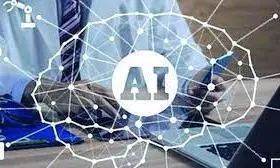AI Powers Next-Gen Patient Care
Technology is revolutionising healthcare through smarter education, diagnosis, treatment and hospital management;

Kurnool: Artificial Intelligence (AI) is playing an increasingly pivotal role in the healthcare sector, revolutionising everything from medical education and diagnostics to hospital management and patient care.
With applications spanning education, behavior modification, pharmaceuticals, early detection, hospital administration, patient monitoring and predictive analytics, AI is reshaping the way healthcare is delivered.
“From classrooms to operation theatres, Artificial Intelligence is revolutionizing all domains of the healthcare sector. AI is emerging as a game-changer in the fields of medical education, hospital administration, patient care, and healthcare research, transforming traditional systems into intelligent, data-driven environments,” said Dr P Sudha Kumari, professor and head of department of Community Medicine at Kurnool Medical College.
In hospital administration, AI is being used to streamline day-to-day operations. Predictive analytics help hospitals forecast patient inflows, ICU requirements and manage resources more efficiently. Routine administrative tasks are increasingly automated, reducing human error and allowing healthcare personnel to focus more on clinical responsibilities.
Patient care and treatment have seen some of the most significant advancements. AI is aiding in the early and accurate diagnosis of diseases such as cancer, diabetic retinopathy and Alzheimer’s through advanced imaging and pattern recognition technologies.
“During the Covid-19 pandemic, AI provided great support to the healthcare sector by assisting in pandemic response, predictive modelling and contact tracing. The Union Government launched the Arogya Setu app for this purpose with the help of technology,” Sudha Kumari added.
Clinical decision support tools are offering doctors evidence-based treatment recommendations by analyzing massive patient datasets and global medical research. Wearable devices integrated with AI now enable real-time monitoring of patients and can alert healthcare providers to any abnormalities. Virtual assistants are also offering round-the-clock support to patients, improving access and response time.
In surgery, AI-assisted robotic procedures are becoming more common, offering enhanced precision and reduced recovery times. In research, AI is accelerating drug discovery and optimizing clinical trials by identifying ideal candidates and predicting trial outcomes with unprecedented accuracy.
In specialties like dermatology, pathology and radiology, AI supports fast and accurate image analysis. For patients battling addiction to drugs, alcohol or smoking, AI-based models are providing counseling alternatives when physical visits are not feasible -- enabling direct, tech-enabled interventions.
“In genomics and clinical trials, AI plays a major role in genetic sequencing and expanding access to the healthcare system,” Sudha Kumari noted. “In future, real-time monitoring and early detection of diseases will become the norm. These systems will help identify gene-related causes of diseases, resolve diagnostic challenges and overcome technical barriers.”
For medical students, AI is proving to be a powerful educational tool. From planning and presentations to exam preparation and doubt clarification, AI-powered platforms are offering instant solutions.
“Students are happy that these models provide quick answers and relevant study materials without having to wait for seniors or faculty. But errors are possible. AI users must verify information before proceeding,” she stressed.
Sudha Kumari added, ”We recently started a Wellness Clinic at the Government General Hospital (GGH) and are planning to launch a website for the hospital and college to enhance visibility and outreach.”

